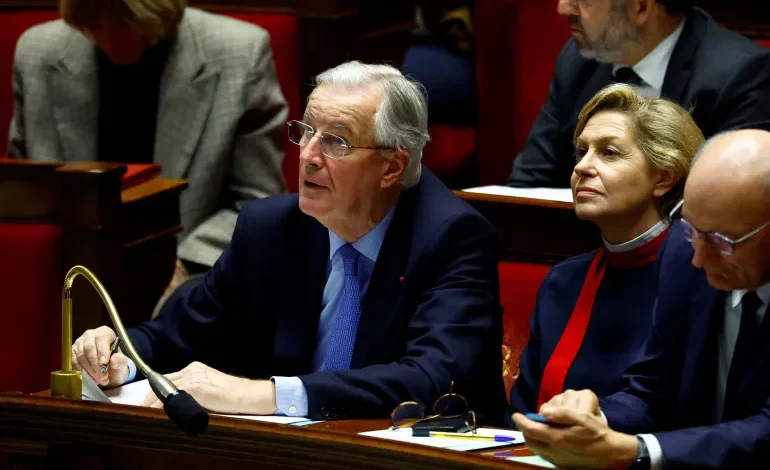French government falls: What’s next for Macron, Le Pen, France?

After less than four months in power, French Prime Minister Michel Barnier’s government has lost a no-confidence vote in parliament over a social security budget dispute.
On Wednesday evening, 331 French legislators from left- and right-wing parties, out of a total of 577 legislators, voted in favour of removing the EU’s former Brexit negotiator and his administration in France’s lower house of parliament.
Barnier, 73, was due to officially present his resignation to French President Emmanuel Macron on Thursday morning. The last time a prime minister resigned following a no-confidence motion was in 1962 when PM Michel Debre, who served under Charles de Gaulle, the founding father of the Fifth Republic and the president of France, resigned over the Algerian crisis.
Barnier’s resignation not only throws Paris into political chaos for the second time this year but also leaves the country without a budget for 2025.
A statement from the Elysee Palace said President Macron would address the nation about what happens next on Thursday evening.
What led to the no-confidence vote?
French parliamentarians from the country’s left-wing alliance, New Popular Front (NFP), tabled the vote in opposition to Barnier’s recent austerity budget. This was later supported by the far-right National Rally (RN), when Barnier tried to push the budget through parliament without a vote.
His budget bill included tax hikes worth 60 billion euros ($63.2bn) and government spending cuts to social security and welfare worth about 40 billion euros ($42.1bn) designed to address the country’s deficit.
France’s public deficit is equivalent to about 6.1 percent of its gross domestic product. Barnier had stated his intention to bring it into line with European Union rules, which require countries to have a budget deficit ratio of no more than 3 percent.
“The choice we made was to protect the French,” Marine Le Pen, leader of the far-right RN told French broadcaster TF1 on Wednesday, after the no-confidence vote. The RN had wanted Barnier’s budget to include a rise in state pensions and a provision to scrap medical reimbursement cuts, among other budget concession demands.
Experts said the uniting of left and right in France over this matter points to a deeper dissatisfaction with the present government.
“I think that I was surprised that it [no-confidence vote] went through,” Gesine Weber, a research fellow at the Paris office of the German Marshall Fund of the United States, told Al Jazeera.
“I didn’t expect that the RN party would support something that was brought in from the left force. But on the other hand, I think this also tells you a lot about the strategy of these political parties whose key ambition is to see this government fall and to slowly poison the political climate to such an extent that Macron is forced out of office,” she added.










